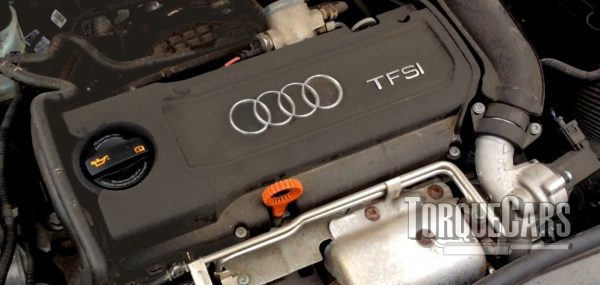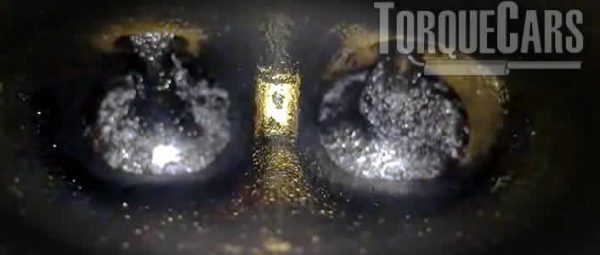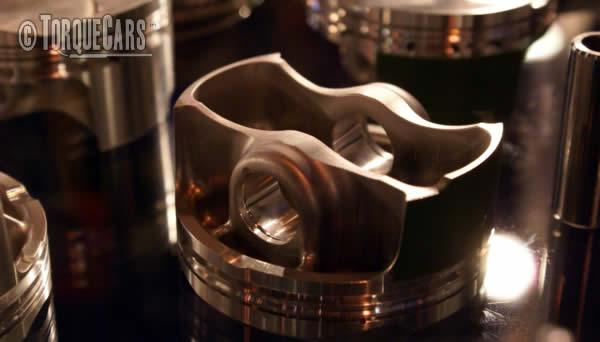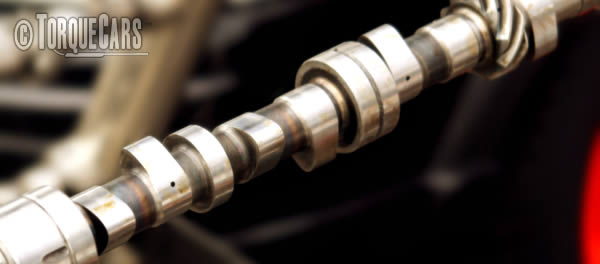Common Issues & Problems on the EA211 EA111 1.4 TFSi 1.4 TSi Engines
"Our guide to the most commonly found problems on the VAG group 1.4 TSi /1.4 TFSi"
In this article, we're going to discuss some of the common problems and pitfalls that you get with the 1.4 TFSI's and TSI engines.
I regard this, especially the EA211 and Gen 3 versions to be the best TFSi engines VAG group have produced. They have addressed and mitigated most of the early issues on direct injection engines.
Don't worry too much about the TSI and tfsi; the T stands for turbo, and the FSI and Si stands for fuel stratified injection or stratified injection, and that just refers to the direct injection method.
The labeling between cars in the Volkswagen Audi group leaves a lot to be desired; they seem to randomly use terms on their engines describing exactly the same engine.
The goal of this article is simply to assist you in identifying these issues before they become major issues.
Some of the problems are quite common and are regularly reported, and most of them are things that you can do something about if you're aware that there is a potential weak spot there and completely avoid the problem in the first place.

Common 1.4 TFSi & 1.4 TSi problems identified in this article
- Slow Warm Up Issues
- Carbon Build Up On All Pure Direct Injection Variants.
- High Oil Consumption on Early 1.4 TFSi TSi Engines
- Weak Diverter Valves
- Crankcase PCV leaks
- Excessive Wear on the Cam Followers
Please watch our video which covers the EA211 1.4 TFSI TSi Problems be sure to keep up with our latest YouTube content and subscribe.
Slow Warm Up Issues
So some people are reporting very slow warm-ups on the 1.4 tfsi engine; that's something that typically doesn't affect a good 1.4 TSI or TFSi engine.
There are aluminum blocks; they're quite small; they're very efficiently designed; and to meet emissions regulations, they are specifically designed to warm up quickly. If your car is taking a long time to warm up, most of the problems are actually just with the thermostat and the way it reports the water temperature to you.
Just replacing the thermostat is usually enough to fix the problem, and it's more of a reporting issue than an actual problem with the car warming up.
I've seen guys recommend leaving the engine running for 15 or 20 minutes, which is a really bad idea. To avoid causing damage or problems within the end engine, never leave an engine idling to warm it up; instead, simply jump in the car and drive it, keeping your RPMs as low as possible during the warm-up period.
Very Few Coilpack issues on the 1.4 TSI TFSi
The coil packs on these are, thankfully, quite reliable.
There have been a lot of issues in the past with coil packs on the Volkswagen and Audi groups, but I've not heard very much when it comes to problems with the coil packs, and you certainly won't be increasing power by upgrading the coil pack. After all a spark is a spark, and the plugs are well-designed, lasting approximately 40 000 miles.
Carbon Build Up On All Pure Direct Injection Variants.
You've got to watch the carbon buildup because these were direct injection engines, and just by their nature, they're not squirting fuel onto the back of the valve.
Carbon will accumulate on those valves, and after 50 to 70 000 miles, that carbon will begin to interfere with the vehicle's performance.

If you notice flat spots and poor running, it's probably down to carbon buildup, and the best way of dealing with it is to have a walnut clean done or have a garage professionally remove the intake and use solvents and chemicals to clean off the carbon on those valves, and it will be as good as new.
Although it is a frustration, every direct injection engine that doesn't employ some sort of port injection method will have a problem with carbon buildup, and I know that a lot of the newer Audi engines also use a little bit of port injection on the warm-up cycle, which really does eliminate any carbon buildup issue.
Perhaps that's an option if you were an adventurous mechanic and you wanted to upgrade your car and avoid the carbon buildup issue; setting up some kind of port injection could certainly help to remove that risk entirely.
Another point of contention in discussions with people about the 1.4 engines is whether they have a timing belt or a timing chain, and again, what Volkswagen Audi Group did seemed almost random.
I know that a lot of the cylinder on demand and newer models have gone back to using a timing belt, and a lot of the older engines have a timing chain, but there is no clear year from what I can make out as to when this was changed over
If you've got a timing problem, whichever comes up soonest servicewise either miles or years, it certainly makes a lot of sense to get those belts and timing chains changed.
The last thing you want is for them to snap and end up with pistons crashing into the valves, causing all sorts of problems in the engine, and that is a pretty expensive repair.
High Oil Consumption on Early 1.4 TFSi TSi Engines
High oil consumption has also been reported on some 1.4 tfsi engines; this is frequently attributed to the rings and cylinders. Some of the early ones had problems with piston rings, and they would burn a lot of oil; a lot of oil would get by those piston rings.
It was particularly an issue with the twin-charged versions of the engine, but if you're experiencing high oil consumption, suspect that it may well be related to the piston rings, especially on those early engines that came out.

On the newer engines, and on those early engines that have had a factory recall and have had various parts and components replaced, it shouldn't any longer be an issue. Keep an eye on the oil consumption; mine hardly uses any oil between service intervals.
I generally top it up with between half a liter and a liter, and that is literally about nine thousand twelve thousand miles of driving. It's not using any, and I came from a two-liter TFSI many years ago, and that seemed to use a liter.
I'm quite grateful for the way these engines have been designed, but if they are using oil, there is a problem there that you do need to get addressed.
Weak Diverter Valves
The diverter valves on these engines can be weak. Typically showing up when you take your car in for a remap.
This problem is usually associated with some diverter valve issue, and usually the diaphragm starting to fail.
If you are thinking of engine tuning/remapping as a precaution, I would upgrade the diverter valve on the turbocharger and just make sure that it's going to be able to handle the demands that you're going to be placing upon it with your remap.
Crankcase PCV leaks
Another thing to keep an eye out for with these engines is the PCV valve on the crankcase; if it fails, you'll have all sorts of issues, such as rough running when it idles, jerky acceleration, especially as you go on or off throttle, and it will upset the fueling.
It's a very simple part to replace; it's usually just four screws. It's relatively easy to access as well. If you have a problem with your PCV valve, it certainly makes sense to just ditch the old one and get a new one and fit that yourself.
Don't take it into a garage and ask them to do it. You don't want to pay labor fees on garages when it's a job that you can do yourself, and there are lots of guides online as to how to change the PCV. In higher RPM applications, keep an eye on the cam follower as well.
Excessive Wear on the Cam Followers
If you drive the car particularly hard, you can get excessive cam follower wear, and that can present lots of different problems with the engine. It affects the idling and the rough running of the engine and directly impacts the efficiency of the high pressure fuel pump attached to it.
Just keep an eye on that and check it every 10,000 miles or so. Just check it for wear, and if you're noticing wear, get it sorted.

Don't live with it and wait for it to fail because of the knock-on effect. That could have a long-term negative impact on the entire engine.
Turbochargers are generally quite reliable. If you start to get black smoke, blue smoke, or white smoke, it could well be down to an issue or a fault with the turbo. You'll typically notice some kind of whining or siren noise coming from the turbo before it fails.
If you notice any turbo noises that were not present when you first purchased the vehicle, have the turbo checked out because if it fails, it can have disastrous consequences on the engine and certainly affect your reliability, leaving you with a breakdown to deal with at some point.
Please watch our video which covers the 5 principles of EA211 tuning. Be sure to keep up with our latest YouTube content and subscribe.
Please let us know in the comments if you have had any issues or problems, and I'll do my best to help you get to the bottom of them. If things crop up often I'll create a video to address these.
Be sure to drop in our forum where you can swap ideas and get some pointers on all aspects of your 1.4 TSi TFSi engine.
Please Check out my YouTube channel, we're regularly adding new content...
PLEASE HELP: I NEED YOUR DONATIONS TO COVER THE COSTS OF RUNNING THIS SITE AND KEEP IT RUNNING. I do not charge you to access this website and it saves most TorqueCars readers $100's each year - but we are NON PROFIT and not even covering our costs. To keep us running PLEASE Donate here
If you liked this page please share it with your friends, drop a link to it in your favourite forum or use the bookmarking options to save it to your social media profile.
Feedback - What do You Think?
Please use our forums if you wish to ask a tuning question, and please note we do not sell parts or services, we are just an online magazine.
Help us improve, leave a suggestion or tip
Please watch this video and subscribe to my YouTube channel.
One Response to “1.4 TFSi TSi problems”

 Click to accept YouTube Cookies & Play.
Click to accept YouTube Cookies & Play.
Hi, I am planning on purchasing a 1.4A TSI and would want to know the most effective tuning mods to do to make this a fun and powerful car. I am planning on renting out the car for the next year and would need to scrap it after a year as I am in Singapore and the laws here are as such. Any advice for what are the most effective mods from a stock scirocco and what to look out for when purchsing a used scirocco would be greatly appreicated. I plan on upgrading to a larger turbo, cold air intake and better cams and blow off valves. Other than that I am not too sure what to do. The coilovers and the rims are already upgraded.
Thank you for your time and I hope to get a response from you,
Arian